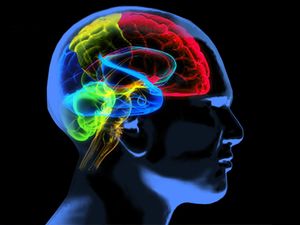The study, published in Nature Medicine, demonstrated that blood levels of MTBR-tau243 could accurately differentiate between patients with early and later stages of Alzheimer’s disease
US researchers have developed a groundbreaking blood test that not only aids in diagnosing Alzheimer’s disease but also provides valuable insight into how far the disease has progressed. Unlike current blood tests that can confirm the presence of Alzheimer’s, this new test can determine the clinical stage of the disease, helping doctors assess the severity of cognitive decline and memory loss in patients.
Currently, blood tests available for Alzheimer’s can diagnose the disease but fail to give any indication of the extent to which it has affected a patient’s cognitive abilities. The newly developed test can offer a more comprehensive understanding, enabling doctors to track the progression of Alzheimer’s and make more informed decisions about treatment options.
Developed by researchers from Washington University School of Medicine in St. Louis, US, and Lund University in Sweden, the test measures levels of a protein called MTBR-tau243 in the blood. This protein is associated with tau aggregates in the brain, which are a hallmark of Alzheimer’s disease. The researchers found that the amount of MTBR-tau243 in the blood directly correlates with the severity of tau accumulation in the brain, providing a clear indicator of the disease’s progression.
The study, published in Nature Medicine, demonstrated that blood levels of MTBR-tau243 could accurately differentiate between patients with early and later stages of Alzheimer’s disease. Additionally, the test successfully identified individuals whose cognitive decline was not caused by Alzheimer’s, offering an important tool for distinguishing between various forms of dementia.
“This blood test clearly identifies Alzheimer’s tau tangles, which is our best biomarker measure of Alzheimer’s symptoms and dementia,” said Randall J. Bateman, a Professor of Neurology at Washington University and co-senior author of the study.
“In clinical practice right now, we don’t have easy or accessible measures of Alzheimer’s tangles and dementia, so a tangle blood test like this can provide a much better indication of whether the symptoms are due to Alzheimer’s and may also help doctors decide which treatments are best for their patients.”
For the study, researchers analyzed blood samples from two groups of people with cognitive decline—one group of 108 participants from the US and a second subset of 55 individuals from Sweden. To validate the results, the researchers tested their method against an independent dataset of 739 people from Sweden. This rigorous testing showed that the MTBR-tau243 levels in blood samples accurately reflected the amount of tau tangles in the brain with an impressive 92 percent accuracy rate.
The implications of this breakthrough are far-reaching. Until now, diagnosing Alzheimer’s with certainty has been a challenge, as most tests primarily focus on identifying the presence of amyloid plaques or assessing general cognitive decline. The new test adds another layer of precision by specifically measuring tau tangles, the brain abnormalities that are widely considered to be central to the progression of Alzheimer’s disease.
In addition to aiding in diagnosis, the test can also help doctors determine which patients are most likely to benefit from specific drug treatments. By providing more detailed information about the progression of Alzheimer’s, this test could lead to more personalized and effective treatment plans, ultimately improving the quality of life for patients.
“Currently, we rely on clinical symptoms and brain scans to assess the progression of Alzheimer’s disease. This new blood test could replace the need for invasive procedures and provide a non-invasive, cost-effective way to monitor the disease over time,” said Bateman. “It has the potential to revolutionize both the diagnosis and management of Alzheimer’s disease.”
As Alzheimer’s disease continues to affect millions of people worldwide, this new blood test represents a significant step forward in the ongoing effort to improve diagnosis, treatment, and understanding of the disease. With further validation and broader clinical use, it could soon become an invaluable tool in the fight against Alzheimer’s disease, offering hope for earlier detection and more effective interventions.











